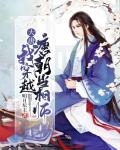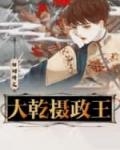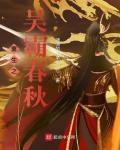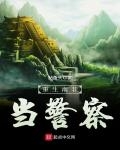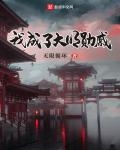Chapter 31 Off Topic
It is indeed Lu Bing. Needless to say, the "Lu Dianzhang" before is his father Lu Song. He is truly a son of a general. You have extraordinary talents at such a young age...
"Boy named Lu, we are here to apply for a study companion, but you actually want to be a book boy? Are you willing to be so lowly as to lower yourself to low status?" Master Jing had quick thinking and immediately realized that Lu Bing's ideas were different from those of others.
"Well... uh... this..."
Lu Bing was too young to answer such a tricky question.
Zhu Hao smiled and said, "He can be whatever he wants to be. Don't make it difficult for him... The next exam is about to begin."
Zhu Hao then pointed to several middle-aged men who were coming out from the corridor in front. If nothing unexpected happened, they should be the examiners of the next exam.
Zhang Zuo did not show up. Zhu Hao recognized one of the examiners this time, who was Sui Gongyan, who had previously communicated with Mr. Lu, who was suspected to be Tang Bohu. It was said that this person was a juren and worked as a teacher in the royal palace. It was very likely that he would study under his name after entering the royal palace, so it was reasonable for him to be the second examiner.
As for the man who came out with Sui Gongyan, Zhu Hao actually recognized him. It was Jiang Lun, who had become a little carried away by his complacency after Zhu Hao flattered him a few words during the registration process.
"Okay, stop talking and go back to your seats."
As soon as Jiang Lun arrived, he asked the child to return to the table where he had taken the written test.
Zhu Hao and Master Jing still sat at the same table.
There were some empty seats nearby, which could have been shared. With Mr. Jing's status, he could have occupied the entire table alone, but he seemed intent on competing with Zhu Hao and refused to leave.
Zhu Hao didn't bother to pay attention.
…
…
All children in place.
Jiang Lun looked around and said with a smile: "It seems that you all performed well in the first exam . The fact that you can continue to stay here shows that you have good knowledge."
Is it good enough just to be able to recite a few sentences from The Analects of Confucius?
This Jiang Lun is really good at flattering people!
Jiang Lun continued, "The second exam will be given by our teacher, Mr. Sui, a longevity scholar. You should listen carefully. If you can pass this exam, you will be one step closer to becoming a companion to the prince."
Although it was just polite talk, Zhu Hao still heard some key information from it.
Originally, Zhu Hao didn't know how many exams there were in this selection, but according to Jiang Lun, this was not the last one, and there would be at least one more round, and the examiner would most likely be replaced. Zhu Hao hoped that Zhu San and Zhu Si would come out together to choose a study partner, so that his chances of success would be greatly increased.
"Now, please let Mr. Sui ask the questions." After Jiang Lun finished speaking, he looked at Sui Gongyan who was sitting upright in the chair with a proud look, meaning that you can start.
Zhu Hao lowered his head.
From his previous brief interactions with Sui Gongyan, he knew that this person was narrow-minded. If he were to find out that he was being selected here, there was no telling what kind of trouble he would cause.
Mr. Lu clearly stated that I was his disciple. Would Sui Gongyan accept into his side a disciple of someone who was more knowledgeable and famous than himself?
Sui Gongyan seemed not to notice Zhu Hao's presence. He took a sip of the teacup and said in a deep and powerful voice: "Students of Confucianism should not only study the classics, but also be well-versed in ancient and modern times..."
Zhu Hao understood immediately.
The topic is definitely biased.
really.
"Then I will tell you about the history of China, which spans more than 2,000 years, from the pre-Qin period to the present day."
The boys who should be selected stare at each other and discuss history?
The questions were obviously beyond the syllabus, and also deviated from the topic of the companion study. Wasn't it agreed that whoever was more knowledgeable would stay as a companion study? The problem was that the imperial examination did not test these questions.
Sui Gongyan seemed to be unaware of the confusion in the children's hearts. He circled his right index finger and said, "Write your names on the top of the test paper."
This left the children completely confused. Was this a history test?
Jiang Lun hurriedly said, "Just write when I tell you to. This way you can know whose paper it is later. If you write slowly, you will be too late to answer the questions later."
Jiang Lun is a kind-hearted person, Zhu Hao can see that. This guy doesn’t have a high status in the palace, so he uses all means to show his presence... Brother, you are very inferior!
"It is said that in the pre-Qin period, many wise men emerged in China. Since Shennong established the dynasty, the Chinese people began to live a life of men farming and women weaving. Later, there were several wise monarchs, Yao, Shun, and Yu. At that time, China was flooded. One of them said, 'When you marry a wife, you must not be partial to her.' Which monarch was he talking about?"
Having said this, Sui Gongyan paused, picked up the tea bowl and took a sip.
Needless to say, this is the first question.
If this question is asked to adults who are well-versed in poetry and literature, it may not be difficult, but the subjects in front of them are a group of children who are generally seven or eight years old and have only read one or two years of books... It is almost like listening to a foreign language.
You may not even know the question has been asked after listening to it!
"When I marry a wife, I will not be partial to her when I enter her house." This question is too easy for Zhu Hao. Isn't this the same as Dayu who "passed by his home three times without entering" during his flood control trip?
But you can't write Dayu, you have to write "Yu". The examiner said that this person must be a descendant of Yao, Shun and Yu. Zhu Hao wrote it in one stroke, and Master Jing next to him also answered it without any suspense.
But looking at the students present, less than half of them can pick up the pen and write on paper. Whether it is right or not is another matter.
Sui Gongyan finished his tea and continued his story without caring whether the children had finished answering: "Later, the Xia and Shang dynasties came into being. There was a wise monarch like Shang Tang, but at the end of the Shang dynasty, the people were living in poverty. King Wu defeated King Zhou and the Zhou Dynasty was established."
Everyone was waiting for the test questions to appear, but they haven't appeared yet.
"When the Zhou Dynasty came to King You, he lit beacons to trick the princes, and the Western Zhou Dynasty was destroyed... In the Eastern Zhou Dynasty, the princes and states rose up one after another, first there was the Spring and Autumn Period, and then the Warring States Period. At this time, there were hundreds of schools of thought. Sima Qian once said, 'Without distinguishing between relatives and strangers, and between the noble and the humble, once it is determined by law, the kindness of relatives and elders will end.' Which school of thought was he referring to?"
The second question is raised.
The children present were dumbfounded again.
We haven't even figured out Confucianism yet, and you come right up and talk about the Hundred Schools of Thought?
Zhu Hao pondered in his heart: "Could it be that Sui Gongyan advocates the Legalists? King Xing would summon a scholar who advocates the Legalists to teach his son... Interesting."
Picking up the pen, he simply wrote the word "Legalist".
This time, Mr. Jing thought for a long time before he started writing, but he was obviously not very sure, as this question was a bit beyond the scope for him.
"At the end of the Warring States period, the King of Qin swept across the world and established unprecedented achievements. However, the tyranny of Qin lasted only two generations. At the end of the Qin Dynasty, there were many people who could not imagine the ambitions of swans. There is also the allusion that although there were only three households in Chu, it was able to destroy Qin. The Chu and Han dynasties fought for the throne, and the Han Dynasty established the prestige of China. There were the reigns of Emperor Wen and Emperor Jing before, and Emperor Xiao and Emperor Xuan after. At that time, which emperor implemented the strategy of 'abolishing all schools of thought and promoting the Six Classics'?"
The third question is asked.
Zhu Hao answered: Emperor Wu of Han.
"Towards the end of the Western Han Dynasty, there were the Xinmang and Gengshi rebellions, with the Green Forest and Red Eyebrows becoming demons. Fortunately, Emperor Guangwu stabilized the country and continued the Han Dynasty for another 200 years."
"However, at the end of the Eastern Han Dynasty, many heroes rose up, some of them beheaded the emperor and held him hostage to control the princes. However, the royal family was still safe in the southwest. The first emperor was kind and often taught the second emperor to restore the Han Dynasty. He once made a judgment on good and evil things. Which sentence is it?"
Question 4.
Do not do evil for the sake of small gains, and do not refrain from doing good for the sake of small gains.
"Then the ruler was incompetent and failed to stabilize the Central Plains. The Wei Dynasty destroyed the Han Dynasty, and the Jin Dynasty destroyed the Wei Dynasty. The Sima family was not benevolent and virtuous, so the Central Plains was lost, and the Hu people disturbed China. The general trend of the world is that long-term unity will eventually divide, and long-term division will eventually unite. The Sui Dynasty stabilized China, but Emperor Yang of Sui conquered Goguryeo three times, abused the people's strength, and indulged in extravagance. As a result, Emperor Gaozu of Tang raised troops in Taiyuan and established the foundation of the Tang Dynasty for 300 years."
"Tang Taizong cultivated benevolence and virtue. Wei Zheng once quoted a saying: "Those who use boats and water to advise the king, which one is it?"
Question 5.
The king is the boat and the common people are the water. The water can carry the boat, and the water can also capsize it.
…
…
The question was already halfway through, and Zhu Hao did not find it difficult to answer it.
In fact, as long as one is familiar with Chinese history, these are not difficult problems, but the problem is that the examinees are all children. It is extremely difficult to acquire knowledge these days. As long as no one teaches, it is impossible to learn by oneself.
Zhu Hao also mastered some rules from the questions asked by Sui Gongyan.
It sounds like Legalism, but in essence it is Confucianism. It links the rise and fall of a dynasty with whether the emperor cultivates "benevolence". It seems dialectical, but in fact it is all subjective conjecture.
"Until the end of the Tang Dynasty, Zhu Wen usurped the throne, and the Five Dynasties were in turmoil. Later, Emperor Gaozu of Song Dynasty rebelled at Chenqiao and re-established China. However, due to the quarrels between brothers, the mystery of the golden box, the shadow of the candle and the sound of the axe, the throne fell to someone else..."
There are no questions here.
Zhu Hao heard the problem.
The throne fell...
Is this a metaphor that the throne of Emperor Taizong of the Ming Dynasty was not obtained in a legitimate way?
How dare you say such things?
"…The Jingkang Shame is the shame of China. The Song court was in Lin'an in the south of the Yangtze River. After more than a hundred years, the Tatars rose up in the grasslands and overthrew China. The nine provinces suffered. The country was about to collapse, but there were still loyal ministers and righteous men who did not forget their integrity. When Wen Zhongliegong crossed the Lingding Ocean, he wrote a poem to express his feelings. Please write it down."
Question 6.
After all the hardships, the stars are dimmed by war. The mountains and rivers are broken, the wind blows the catkins, and my life is up and down like duckweed in the rain. I am afraid at the beach, and I feel lonely in the ocean. Everyone has to die since ancient times, but I will leave my loyalty to shine in history.
"The Mongols ruled our Han people with brutality and cruelty. Our Emperor Taizu raised an army in Wu, and with the assistance of loyal ministers and good generals, he drove out the Tartars and pacified China..."
At this point, Zhu Hao wanted to hear Sui Gongyan's evaluation of the dynasty, but Sui Gongyan was very smart and stopped talking here: "...Okay, that's all. Submit your writings and wait for the results aside."

